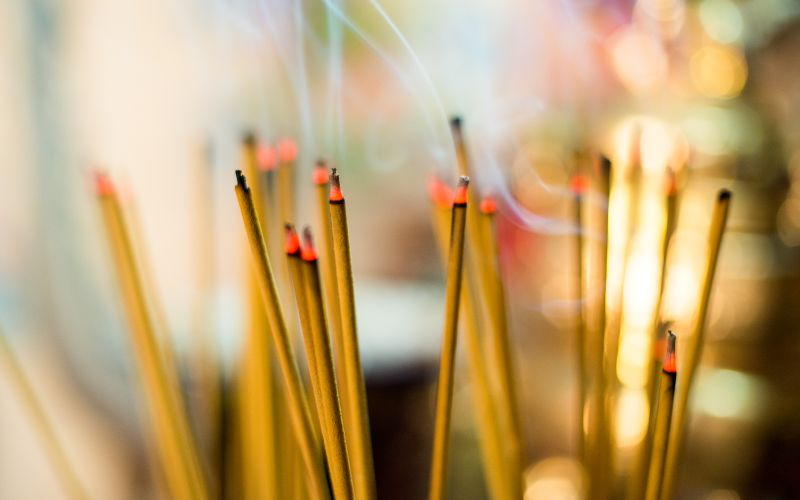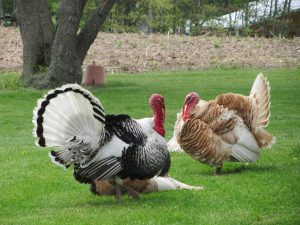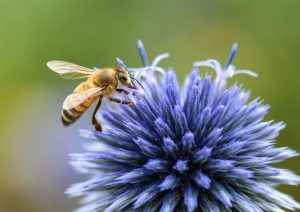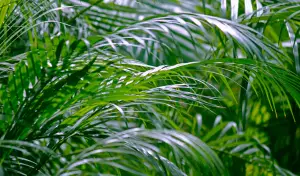If you’re a gardener, chances are you’re always on the lookout for ways to improve your plants’ health and growth.
Composting is a great way to give your plants a nutrient boost, but what about using incense ash?
You might be surprised to learn that incense ash can actually be beneficial for plants in small amounts. Let’s take a closer look.
Incense ash contains phosphorus, potassium, and calcium, which are all important nutrients for plant growth. In addition, the ash helps to improve soil drainage and aeration. However, it’s important to use caution when applying incense ash to your plants. The ash can be harmful if used in large quantities, so it’s best to apply it sparingly and only to specific areas of your garden.
Using incense ash in the garden
If you do decide to use incense ash in your garden, there are a few things you should keep in mind.
First of all, incense ash can be quite concentrated, so it’s important to use it sparingly.
Too much ash can actually damage your plants by burning their roots.
Secondly, make sure you’re using ash from natural incense sticks—not the cheap knock-offs that contain chemicals and other harmful substances.
Thirdly, always test a small area of your plant before applying the ash to the entire thing.
This will help you to avoid any unwanted surprises.
Sprinkle the ash directly to the soil around the base of the plant; don’t allow it to come into contact with the plant itself.
Add incense ash to the compost heap
You can also add it to your compost pile for an extra boost of nutrients.
Incense ash contains Potassium, Phosphorus, and Nitrogen, which are all essential nutrients for healthy plant growth.
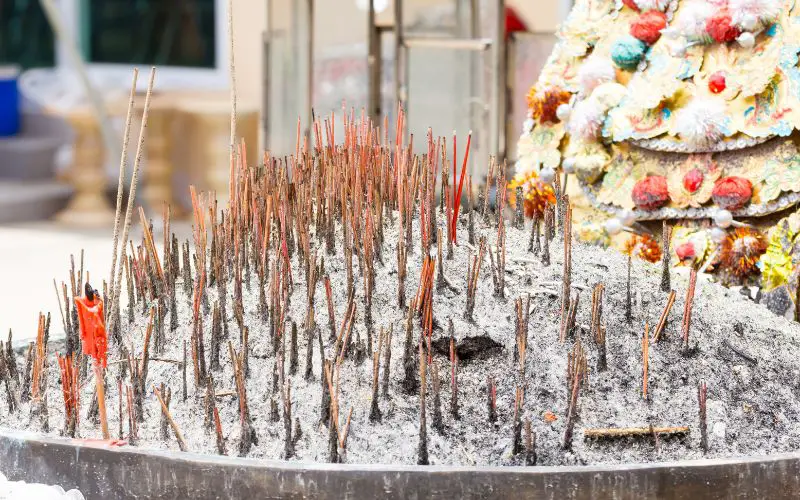
Make a decoction
Another way to use incense ash is to make a decoction.
To do this, boil a small amount of water and add 1-2 tablespoons of incense ash. Allow the mixture to cool, then water your plants with it.
This solution can also be used as a foliar spray; just be sure to strain it first so that you don’t clog up your sprayer nozzle.
How does incense ash benefit plants?
Incense ash contains potash, which is a key ingredient in many commercial fertilizers.
Potash helps plants uptake nutrients from the soil and spurs the development of strong roots.
Incense ash also contains small amounts of phosphorus and nitrogen, two other elements that are essential for plant growth.
Both phosphorus and nitrogen help plants develop strong stems and foliage.
Incense ash can also help to improve drainage in sandy soils while improving water retention in clay soils.
This makes it an ideal amendment for gardeners who are trying to improve the quality of their soil.
Finally, incense ash can help deter pests and diseases.
Its pungent smell wards off many common garden pests, and its abrasive texture makes it difficult for disease-causing fungi to take hold.
Final Words
Incense ash can be good for plants—but it’s important to use it carefully.
A little goes a long way, so start with a small amount and increase as needed.
Be sure to source your incense ash from natural incense sticks, and always test an inconspicuous area of your plant before applying it more broadly.
With these tips in mind, you can use incense ash to give your plants the extra boost they need to thrive.
Read Next
How to grow lemons in containers

